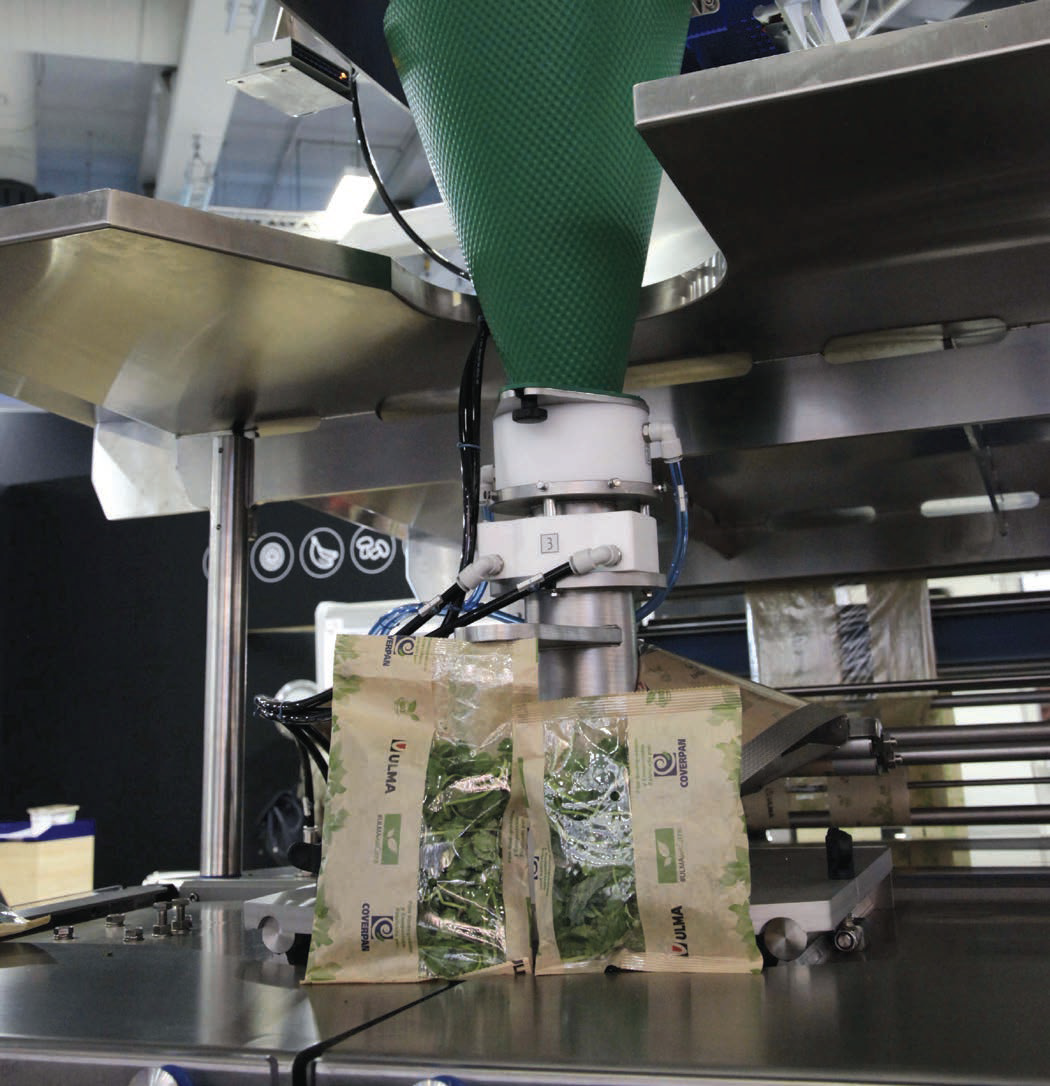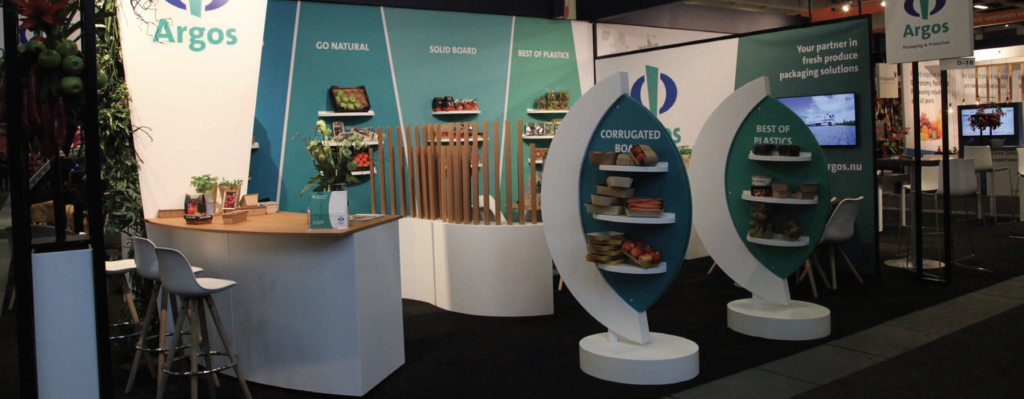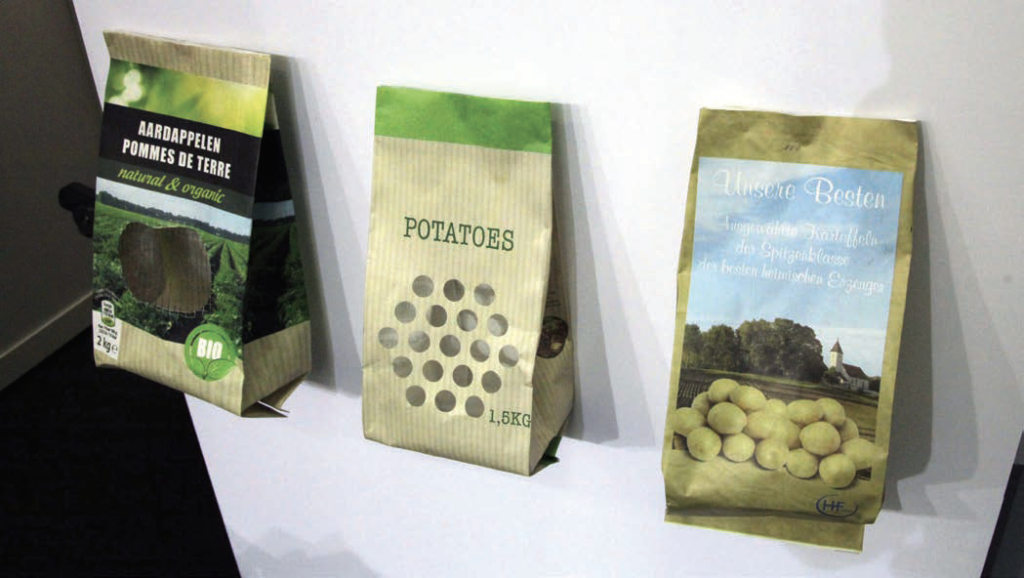
Aug 20, 2020
Paper-based, compostable packaging trend underway in Europe
The packaging industry is facing rapid change, and nowhere was this more evident than at Fruit Logistica 2020 in February, where sustainable packaging solutions were virtually ubiquitous.
It seems as though every packaging company now offers plastic-free, compostable or recyclable options. While not all are suitable for processed fruits and vegetables, they do highlight the positive turn the packaging industry has taken.
This year, Fruit Logistica welcomed over 3,300 exhibitors to Berlin, where they displayed fresh fruits and vegetables from every continent, as well as processing equipment, packaging solutions, machinery and technology. It’s the perfect place to catch the first wave of the next big thing, and this year it was plastic-free packaging.
Harpak-ulma launches plastic-free solutions

At Fruit Logistica, designer and manufacturer of packaging systems Harpak-ULMA Packaging focused on sustainable packaging solutions. Their display included plastic-free, paper-based and compostable materials aimed at increasing shelf life and reducing food waste, as well as minimizing impact on the environment by reducing the amount of packaging required to preserve products.
The VTI 640 vertical bagger, for instance, now uses a plastic-free material for packaging herbs using its fully automated process. The vertical bagger has a production speed of up to 65 bags per minute.
For the first time, ULMA also presented the TSA 1200 P tray sealer, a machine that uses a carton tray for fruit and vegetables. The new solution, said ULMA representatives, uses 97% less plastic than the traditional plastic-based sealed trays. The TSA 1200 P is a high-performance tray sealer with high sealing pressure capability at energy efficient levels, and with a production speed of up to 23 cycles per minute.
Argos packaging displays new cardboard packaging

The focus of Dutch company Argos Packaging’s stand was sustainable packaging. The company chose the event to launch their new cardboard fruit and vegetable packaging made from elephant grass grown in the Netherlands. Argos is working with another Dutch company, Vibers, to produce cardboard containers for tomatoes. They were available for sale as of May 2020.
According to Argos, elephant grass is grown without the use of pesticides, irrigation or fertilizers. Each plot of elephant grass absorbs four times more carbon dioxide than the same sized plot filled with trees, making the packaging all the more attractive to consumers.
Argos Packaging also offers new snack cups made of 80% cardboard, offering a more sustainable alternative to the regular PET versions. Cups are printed to customer specifications.
Famag slims down its flagship product
Polish company Famag presented its new and improved packaging, a slimmed down version of its flagship product, NOVO-PACK. The company says that it is constantly on the lookout for new solutions to meet market demands, especially those that address environmental concerns. NOVO-PACK, explained Famag Quality Manager Justyna Knaflewska, is tailored to the needs and customized to the product.
“The main argument was the desire to find a pro-ecological solution because we care about the future,” she said.
The task was not easy, she said. Despite a change in weight, the quality and strength of the packaging had to remain unchanged. The team was successful in the end, and the resulting product is NOVO-PACK.
“NOVO-PACK is ideal for packaging fresh vegetables and fruits that breathe,” said Knaflewska. “The mesh used in this solution provides air circulation to products such as onions, potatoes, oranges, lemons, but also nuts in hard shells, like hazelnuts and walnuts.
The new NOVO-PACK is up to 40% lighter compared to traditional packaging, she added. “By ‘traditional packaging’ we mean a combination of two films in a laminate, glue and mesh,” said Knaflewska. “It is a diverse, difficult-to-recycle, uneconomical solution due to the amount of raw material.”
Considering that, Famag believes that their new solution offers several benefits. There is less plastic in the final solution, for one, and the material used to make NOVO-PACK is homogenous and 100% recyclable. Finally, the lighter weight means more can be transported at the same cargo weight, which reduces further emissions during transport.
Cartopaper prevents dehydration and encourages recycling

Packagers of products like potatoes and onions have special needs. Packaging should prolong shelf life and limit product loss as much as possible. Today’s fruit and vegetable processors and packagers look beyond those basic needs to more sustainable options that further meet the demands of the environmentally conscious consumer. One such company is Paardekooper (until recently, Van der Windt Verpakking) in the Netherlands. Working jointly with German company Cartomat, Pardekooper developed CartoPaper, paper packaging for potatoes, onions and flower bulbs. CartoPaper is Forest Stewardship Council (FSC) certified and made from 100% renewable raw materials. It uses a special spot coating, which makes the paper bags suitable for fully automated processing. Since the coated area makes up less than 5% of the packaging, the coating material degrades during the paper recycling process.
For this reason, it has been approved as a mono-material, meaning it can be disposed of as recycled paper.
Typically, though, recyclable paper isn’t suitable for packaging agricultural products, as the bags often rip when wet and suck moisture from the product. CartoPaper, however, has been designed with these concerns in mind. The packaging is waterproof and does not absorb moisture. The paper packaging is opaque, which helps keep the product fresh, but designed with a perforated “viewing window” so consumers can see the product they’re purchasing.
CartoPaper packaging is suitable for fully automatic, vertical form, fill and seal machines. They are available for filled weights of up to 5.5 pounds.
Top photo: Mondi’s booth at Fruit Logistica showed side-by-side paper and plastic options in this display, titled “Paper Where Possible, Plastic When Useful.”






